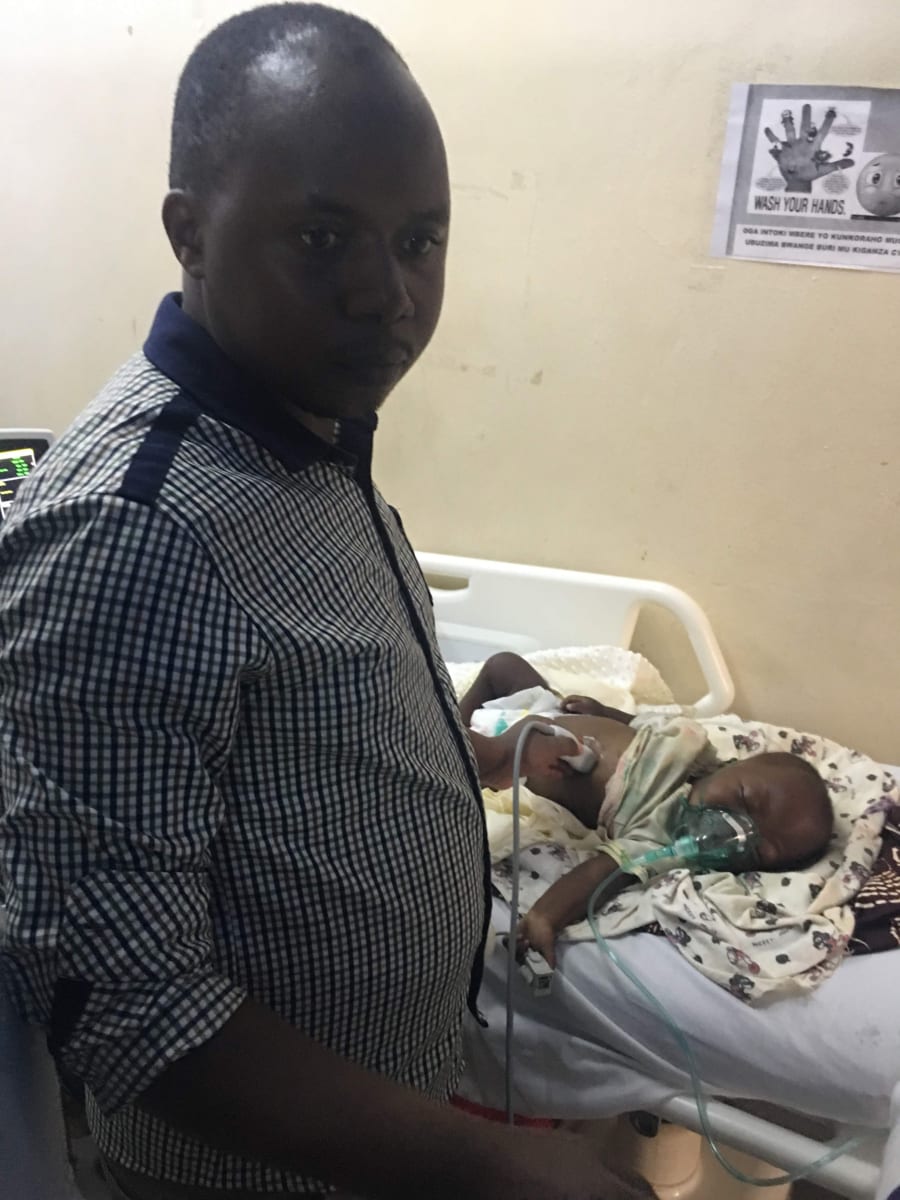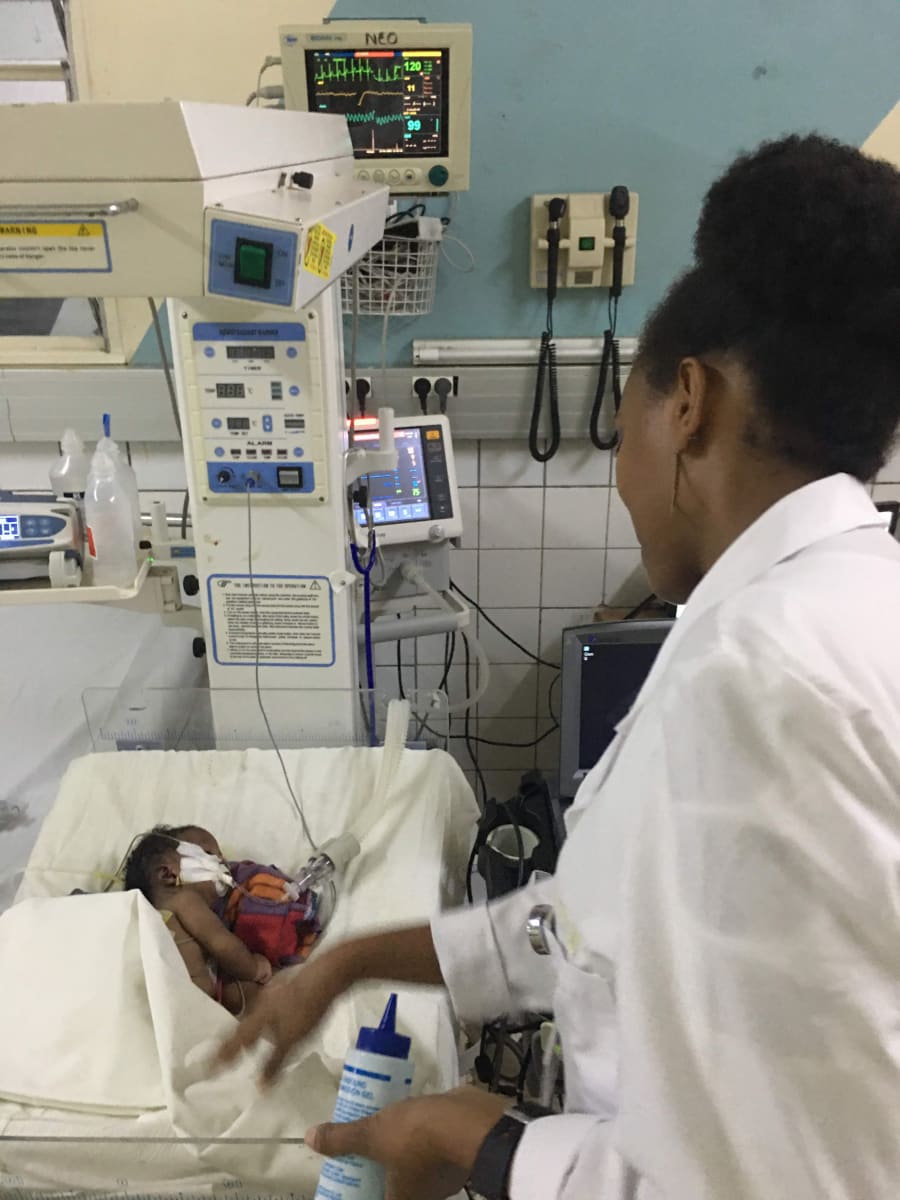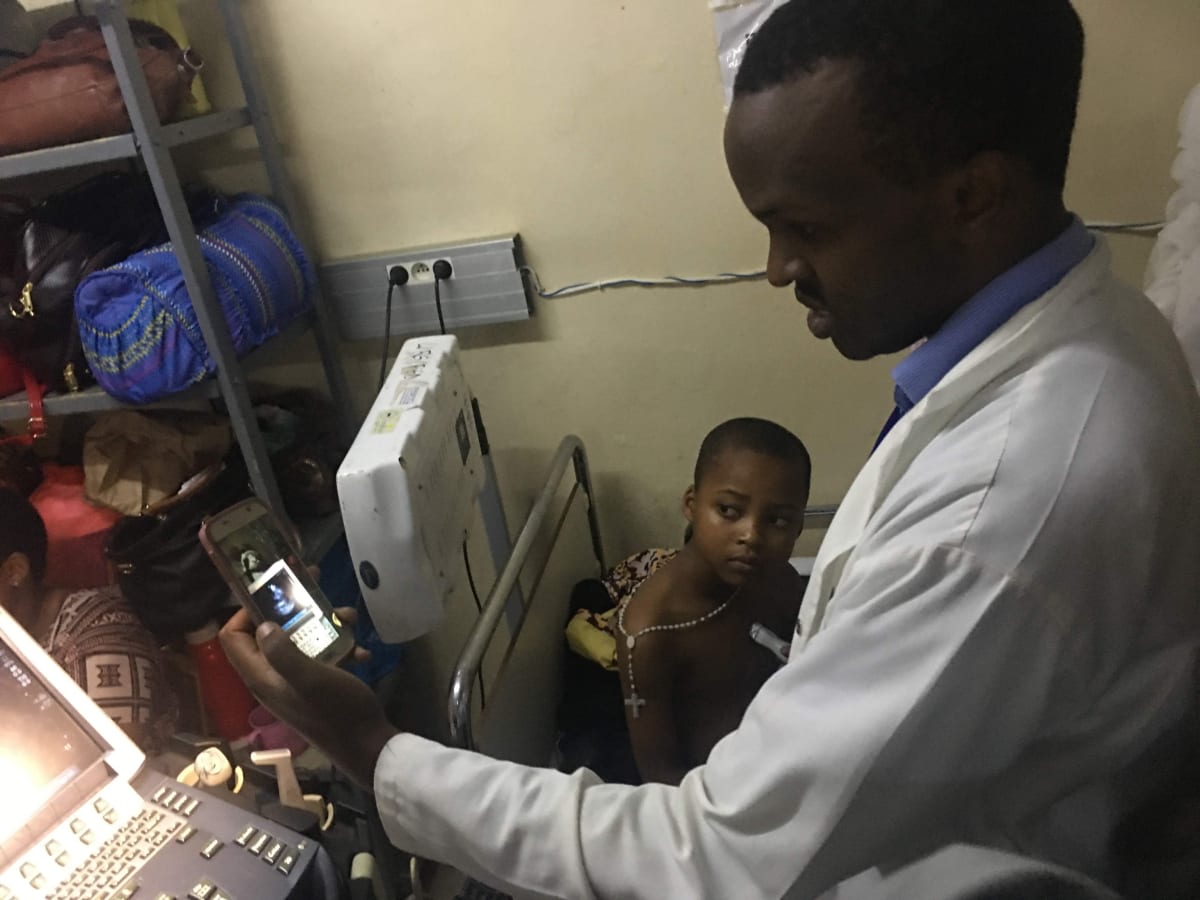Children in developing countries present with the common pathway of shock from a wider range of pathologies. Previous research has shown that in African countries adherence to protocols derived in developed countries unexpectedly lead to worse outcomes in children (Maitland 2011). Malnutrition can complicate fluid resuscitation. Malaria is fairly common. Previously unrecognized congenital heart disease, undiagnosed acquired heart disease such as pericardial effusion, rheumatic heart disease can all present with signs and symptoms of shock. Under these considerations simple physiologic parameters such as heart rate and blood pressure may not capture the underlying physiology for children presenting with shock.
In the past decade point-of-care ultrasound has become part of the requirements for training in Pediatric Emergency Medicine in the US (Marin 2015). Our research has demonstrated that noninvasive measurements with point-of-care ultrasound can detect physiologic changes in the cardiovascular status in children (Chen 2010). Specifically, we demonstrated correlation between simple bedside ultrasound measurement of the IVC to the intravascular volume of patients with dehydration from gastroenteritis. Most recently we have demonstrated the accuracy of novice-performed focused cardiac ultrasound (FOCUS) in the pediatric emergency department (Riera 2018).
We propose to expand our work to train Rwandan pediatric resident physicians to perform focused cardiac ultrasound (FOCUS) in children. We plan to describe the variety of findings in the first phase of the project. We have previously demonstrated the accuracy of interpretation of ultrasound clips transmitted via smartphones over remote distances (Whitney 2016). We will leverage current off-the-shelf telecommunication technologies (Whatsapp, FaceTime) for quality assurance.
The Central Hospital of Kigali is a tertiary care hospital with the only dedicated pediatric emergency department and pediatric intensive care unit in the country. In addition there are over 100 pediatric inpatient beds. The patients come from all over the country and even surround regions such as Democratic Republic of the Congo and Burundi.
The beneficiaries of the project will be residents and physicians in Rwanda, who will become future leaders in pediatrics in the country and in the rest of East Africa. The inpatient pediatric patients at Central Hospital of Kigali will likely benefit from the project by obtaining clinical data that's previously unavailable.
Bedside ultrasound is a disruptive technology that can lead to more efficient and effective care for patients. Rwanda is a country that has become a model for post-conflict development in sub-Saharan Africa. By training a group of pediatric practitioners in Rwanda we can have disproportionate impact in the country and the region.
After my return we will continue to mentor and monitor the practitioners. We have previously demonstrated the accuracy of interpretation of ultrasound clips transmitted via smartphones over remote distances (Whitney 2016). We will leverage current off-the-shelf telecommunication technologies (Whatsapp, FaceTime) for quality assurance.






I was able to visit Rwanda right before the world felt the impact of the
SARS CoV pandemic outside of China. I was fortunate to be able to train pediatric residents at Central Hospital of Kigali in the use of bedside ultrasound to assess for etiology of shock in children in the emergency department and the pediatric intensive care unit. Here's hoping we may resume our collaboration as the virus subsides.